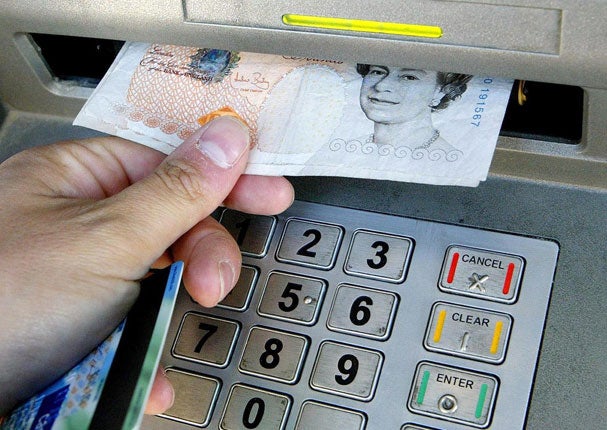Ministers must act to protect cash – or millions face being shut out
Some people have been unable to buy groceries, while in one disturbing incident a diabetic with low blood sugar struggled to purchase food at a motorway service station. James Moore explains why we cannot become a cash-free society just yet


A diabetic man unable to to buy food and with dangerously low blood sugar is the most chilling part of today’s report by Which? looking at the effect of the pandemic on cash, which he was trying to use.
It resonated with me because I have type 1 autoimmune diabetes and so the immediate thought was obviously, that could have been me, followed by goosebumps and a very real shudder.
But this is an issue that goes beyond people with my condition getting caught short in the wrong place – Nando’s and El Mexicana in the case of the man, James Boswell, after ending up stuck in traffic on the M25 for hours – at the wrong time.
It’s a story of a substantial minority of people who were already getting left behind by a digital, card-based economy, and have now found themselves crushed by Covid-19 even if they have successfully avoided the virus.
An Opinium survey of 2,004 people commissioned by Which? found that about one-third (34 per cent) of respondents had been unable to pay with cash at least once since March, when coronavirus restrictions were first introduced, when trying to buy something.
It appears that Boswell’s inability to secure food is not all that uncommon. The purchase most likely to be refused? Groceries, cited by 28 per cent of respondents.
Was his a horrible but isolated incident that was prevented from becoming seriously nasty by his finding a KFC that would accept cash? Could the 28 per cent have found alternative sources of supply, or returned with the cards they’d perhaps left at home?
That’s where it gets interesting because sometimes – and for a substantial minority, maybe always – the answer is no, this isn’t simply an issue of trying another shop or restaurant.
Some five per cent of people told Which? that they rely on cash. That looks like a small number, but it becomes a very large number when you consider the British population as a whole. According to the consumer group, it amounts to 2.5 million people in total.
Some 13 per cent told the organisation that they would “struggle” without it, which comes to 7 million people if the survey is reflective of the population at large.
Combine the two and we’re not far off 10 million people, with a further 40 per cent (22 million) viewing cash as an essential backup.
It goes without saying that the people most reliant on it skew older, and poorer – the groups worst hit by the pandemic medically, in the case of the former, and economically, in the case of the latter.
It clearly makes sense to encourage people to use contactless, card-based payments where they can. But not everyone can easily do so.
At this point, it’s also worth noting that in November the Bank of England published a report titled Cash in the Time of Covid. Its findings dovetail neatly with those of Which? The Bank discovered that, over a six-month span, 42 per cent of people had visited a store that did not accept cash. Its findings were based on a survey it ran last July, with the government having urged retailers to minimise contacts around transactions.
Crucially, it also commissioned research on transmission via banknotes, which found that the virus does not appear to survive long at high levels on them, and that the risk of contracting the virus via banknotes appears to be “low”.
Of greater danger, in a retail environment, would be “breathing in exhaled droplets or aerosols when in close proximity to an infected person within the shop” or “potentially from touching a ‘high touch’ object such as the handles of shopping baskets or shopping trolleys, PIN keypads, products on open shelves or the touchscreens of self-checkout terminals”.
Contactless payment is obviously still preferable where possible, but if it doesn’t work, or if you don’t have it, paying by cash would seem preferable to inputting a PIN number for the purposes of reducing transmission.
Given that a significant number of people either rely on it, or would struggle without it, it clearly has to be made available. Incidents like the one that confronted Boswell demonstrate that the issue may need to be forced.
In a welcome move, Which? says it is working with retailers on an initiative aimed at protecting consumers who rely on cash.
But the government promised legislation to protect it a year ago, legislation that ought to command bipartisan support. It needs to be brought forward and regulators need to be brought in.
There could hardly be a worse time for people to be left shut out of the economy and abandoned. In the absence of action to prevent it from happening, the danger is very real.


Join our commenting forum
Join thought-provoking conversations, follow other Independent readers and see their replies
Comments